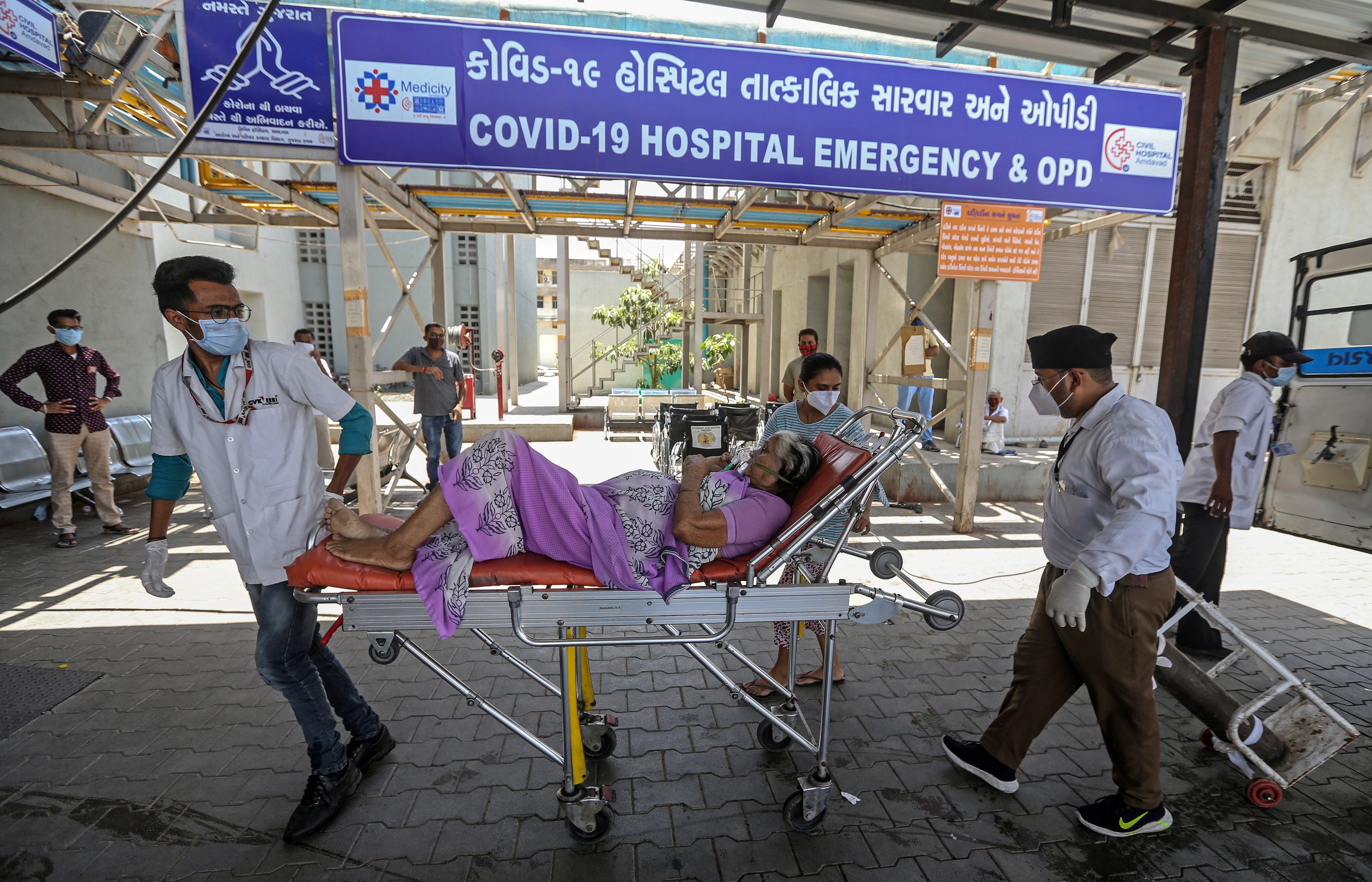Mucormycosis: What you need to know about deadly black fungus seen in Covid-19 patients in India
Pre-existing comorbidities like diabetes and high dependency on steroids linked to fungal infection

Your support helps us to tell the story
From reproductive rights to climate change to Big Tech, The Independent is on the ground when the story is developing. Whether it's investigating the financials of Elon Musk's pro-Trump PAC or producing our latest documentary, 'The A Word', which shines a light on the American women fighting for reproductive rights, we know how important it is to parse out the facts from the messaging.
At such a critical moment in US history, we need reporters on the ground. Your donation allows us to keep sending journalists to speak to both sides of the story.
The Independent is trusted by Americans across the entire political spectrum. And unlike many other quality news outlets, we choose not to lock Americans out of our reporting and analysis with paywalls. We believe quality journalism should be available to everyone, paid for by those who can afford it.
Your support makes all the difference.Hospitals in India are reporting a rise in the number of Covid patients suffering from a secondary black fungus infection, with over 200 such cases reported across the country.
The fungal infection called mucormycosis is caused by a group of moulds called “mucormycetes” that are present in the air and cause complications in those with acute illnesses such as severe Covid, or in people with compromised immunity.
According to doctors, once inhaled the infection in such patients could spread into the sinus cavities, lungs, and chest cavities.
Currently the reasons for the black fungus infection in Covid patients has not been extensively studied.
However, experts believe steroids prescribed to lower the acute inflammatory response in some severe Covid patients may be lowering their immunity enough for the fungal infection to take root as they recover from the coronavirus infection.
Pre-existing comorbidities like diabetes, obesity, and high or uncontrollable level of blood sugar may also put Covid patients at a higher risk of catching mucormycosis.
According to Delhi doctors, patients who contract the black fungus have around a 50 per cent survival rate.
Some of the signs and symptoms of the fungal infection include persistent pain and headaches caused when the fungus infects sinus cavities and nerves.
The Indian Council of Medical Research (ICMR) has asked patients to look out for signs including one-sided facial pain, tooth ache, nasal discharge as well as blackish discolouration at the bridge of the nose.
Mucormycosis infection also reportedly causes people to develop bloodshot eyes, poor vision, or swelling in one of the eyes.
Pain on the cheekbone and skin lesions have also been reported in those infected by the fungus, as well as delirium, memory loss, and neurological impairment.
The most characteristic feature is facial deformity and the growth of black patches around the eyes and nose.
In order to manage the symptoms, ICMR advises doctors to control diabetes in patients and discontinue prescription of drugs that modulate the immune system.
Join our commenting forum
Join thought-provoking conversations, follow other Independent readers and see their replies
Comments